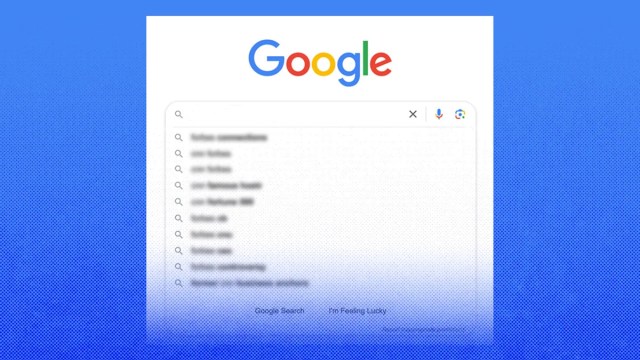News Media Alliance Urges FTC, DOJ to Investigate Google’s Site Reputation Update
Your favorite social media marketing event is headed to NYC this May 12–14! Register for Social Media Week before December 16 to lock in early-bird rates and save 50% on your pass.
The News Media Alliance, a trade association representing over 2,200 publishers, sent the Department of Justice and Federal Trade Commission an open letter last week urging the organizations to investigate an algorithm update issued by Google earlier this year.
This update, which amended Google’s Site Reputation Abuse (SRA) policy, has upended the affiliate businesses of major news publishers across the industry.
The policy forbids publishers from working with third-party vendors to create affiliate content, such as product reviews. Publishers found by Google to be in violation of the new policy are penalized by being demoted in search visibility, leading to declines in traffic and revenue.
However, according to the NMA and several publishers who spoke with ADWEEK, Google doesn’t have appropriate transparency around violations and how to rectify them.
“Under this new policy, all partnerships where media companies publish third party content or affiliate links, regardless of editorial control and oversight, have the potential to risk Google manually removing content from ranking in search results,” NMA chief executive Danielle Coffey wrote in the letter.
“Once this occurs, even in error, ” she continued, “it can take Google weeks to months to remove manual actions applied against a site and return the website to its proper position in search results.”
In recent months, at least a dozen publishers have seen traffic to their affiliate businesses plummet, throttling their ability to convert shoppers and generate revenue. But at least five affected publishers say that the update, while well-intentioned, has devolved into a kafkaesque nightmare—one that has cost them millions in unrealized revenue and expended resources.
Four publishers said they should not have been penalized—that they are in full compliance with the new policy and were mistakenly punished. A fifth admitted to violating the updated guidelines. But both groups say that the process of appealing and reversing the penalties is frustratingly opaque, leaving publishers to guess blindly at what they need to do to lift their bans.
“We’ve heard very clearly from users that site reputation abuse—commonly referred to as ‘parasite SEO’—leads to a bad search experience for people and an uneven playing field for content creators, and many users and website owners have applauded this update,” a Google spokesperson shared in a statement.
“We enforce our spam policies with a careful and rigorous review process, and effected site owners can submit reconsideration requests,” the spokesperson added.
Even though Google is acting to protect consumers, the company still needs to provide a clear, timely process for publishers to appeal and reverse these bans, according to Coffey. Her letter to the DOJ and FTC aims to draw federal attention to the issue, which comes as Google is already facing stiff anticompetitive scrutiny.
“Google has a right to make rules,” Coffey said. “But when you abuse those rules, and there’s financial gain at stake, no open process, no notice and comment, and no third party to appeal to, then they need to be held accountable.”
An opaque appeals process
Google, infamously, rarely responds to inquiries from website owners, according to search consultant Deborah Carver.
This is frustrating but not often catastrophic, as the company tends to exert influence through incentives rather than penalties, rewarding publishers who follow its best practices.
But in this instance, Google has chosen to penalize publishers it finds to be in violation of SRA while offering no clear explanation of what the sites did wrong or a simple means of appealing and undoing the penalty, according to Coffey.
“Google is targeting, in a pick-and-choose fashion, who it is targeting, and then it is not adhering to its own appeals policy,” Coffey said. “Google is acting as the judge, jury, and executioner here—all without process.”
To appeal a penalty, publishers fill out a series of forms and then wait. Speaking on the condition of anonymity, one publisher told ADWEEK its appeal was rejected, and when it asked why, Google sent only a screenshot of an article the site had published in September. Google provided no further explanation and did not respond to follow-up questions.
“There are no clues—it’s just a story,” said an executive at the company. “It could be the code, the links, the bylines, anything. We’re ready to consider any modifications that Google wants us to make, but they’ve given us no guidelines.”
According to all five affected publishers, the process of appealing the penalties is incredibly opaque—so much so that it has forced several to take drastic measures, overhauling entire editorial processes and codebases to fix the problem without knowing what they did wrong in the first place.
One frustrated publisher decided it was easiest to start from scratch, deleting over 15,000 articles—more than three years of work—rather than continue trying to determine what part of its content Google had found objectionable. Another sent in proof of employment records for all 30 staff of its affiliate division to prove they were in-house rather than third-party contractors.
The financial burden of the ordeal has led several of the publishers to weigh whether or not affiliate businesses are even a viable venture—especially if a valuable business can be wiped from the internet at any time and without a clear explanation of why.
“What more can we do than present to them our policies, our employee records, our bylines?” said the executive. “We’re sitting here, ready and willing to make changes.”
https://www.adweek.com/media/news-media-alliance-google-site-reputation/
